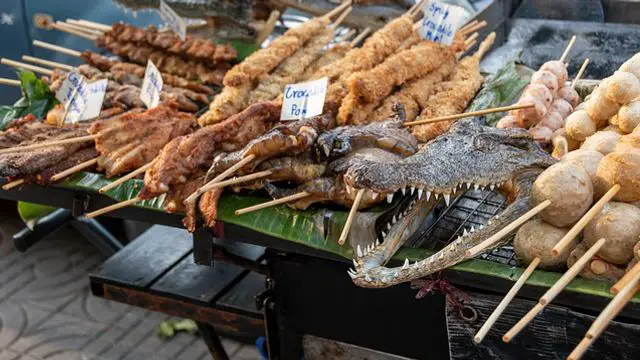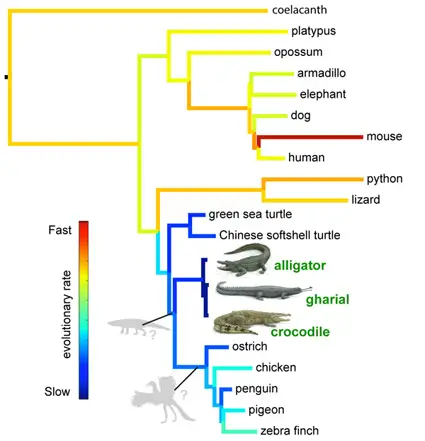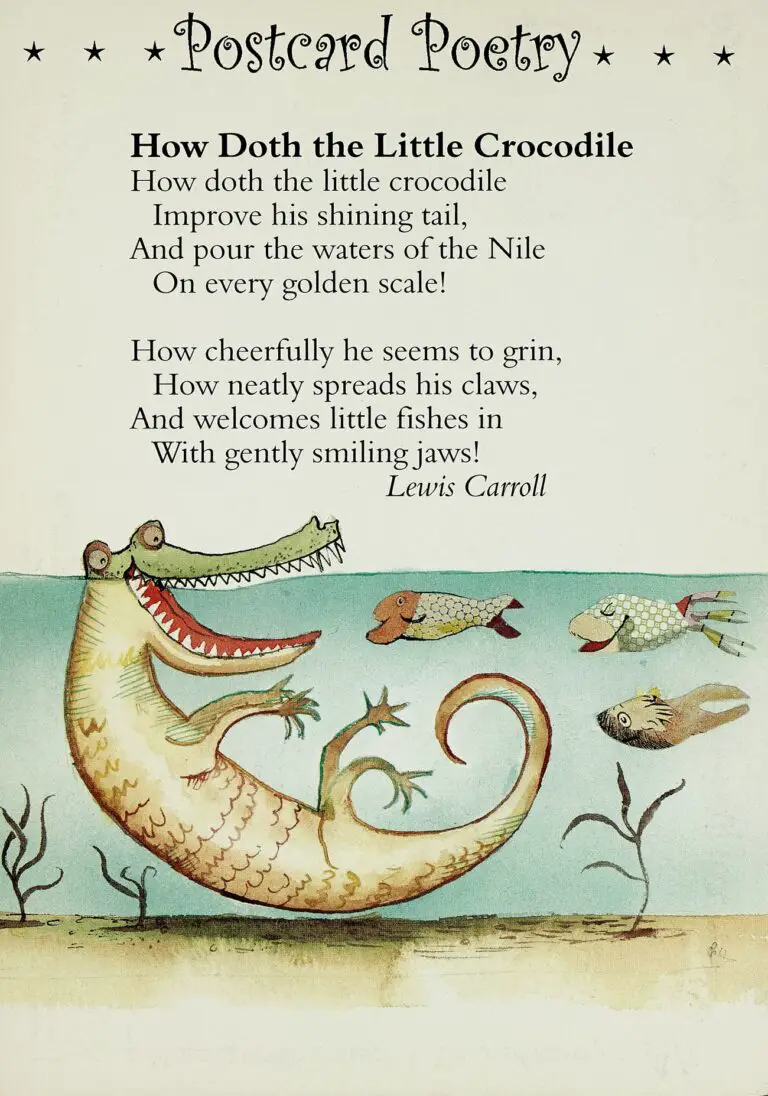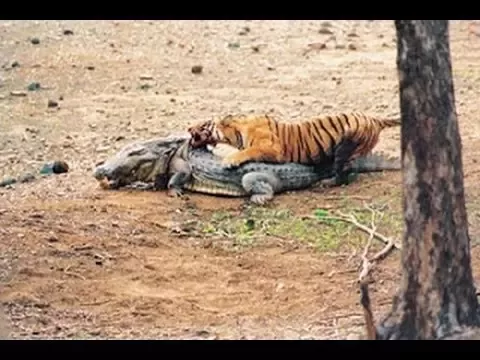Why Do Crocodiles Swallow Stones
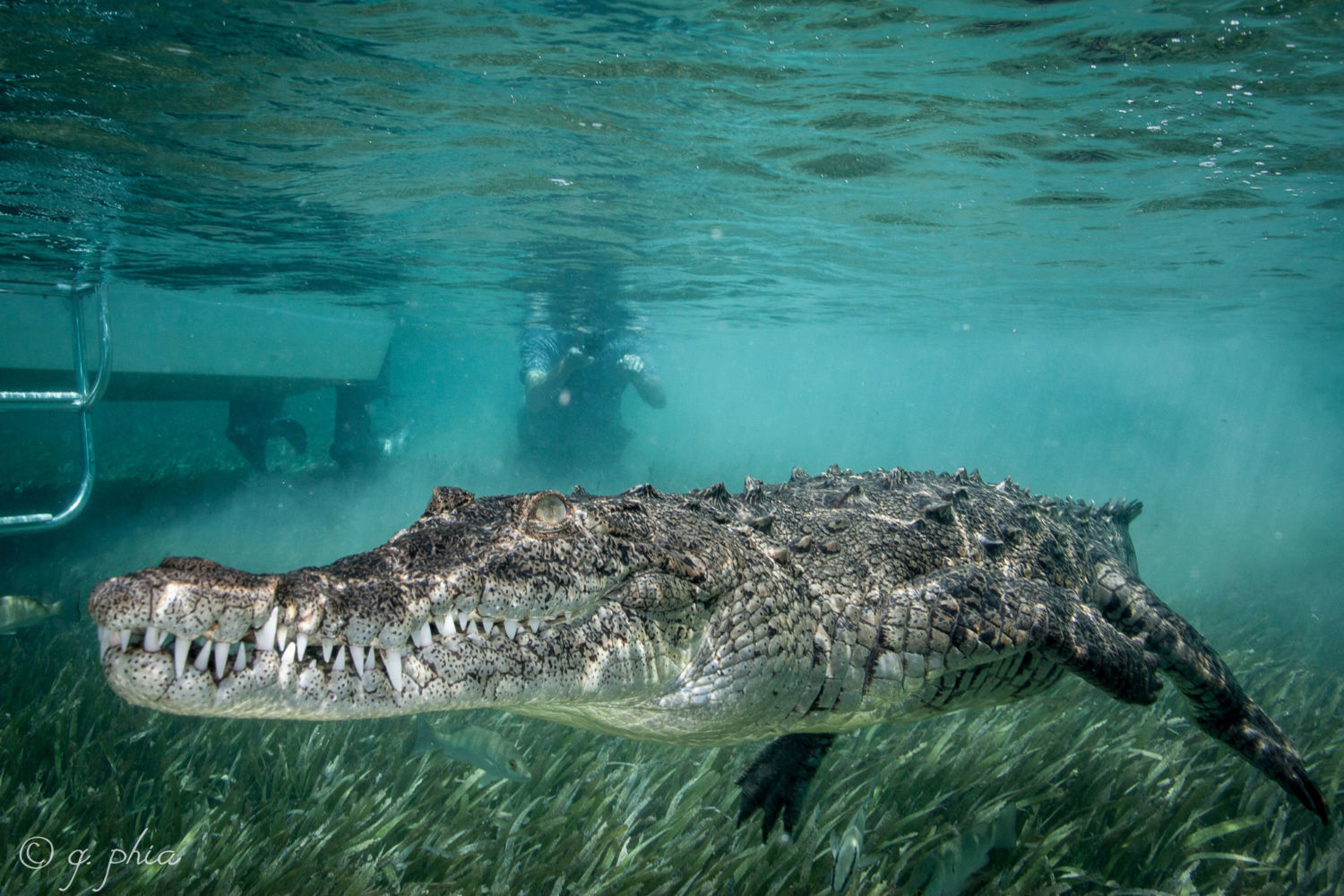
Crocodiles swallow stones, known as gastroliths, to aid in the breakdown of food as they do not chew. These stones help with basic digestion by crushing and grating the food in their stomach.
1. The Purpose Of Stones In Crocodiles’ Stomachs
Crocodiles swallow stones, known as gastroliths, which aid in the breakdown of food as they do not chew. The true reason behind this behavior is not fully understood, but it is believed to assist in digestion.
Crocodiles swallow stones, called gastroliths, for several reasons. Aid in Digestion: Stones help grind and crush food as they pass through the stomach. Get Rid of Parasites: The rough stones may help mechanically remove parasites from the digestive system. Crocodiles may also swallow stones to Increase Bottom Time on Dives, as the stones can help them weigh down and stay submerged for longer periods. While the precise reason for this behavior isn’t fully known, this is a common phenomenon among crocodiles and other crocodylians.2. Theories And Studies
There are several theories and studies regarding the phenomenon of crocodiles swallowing stones. One theory suggests that crocodiles ingest stones, known as gastroliths, to aid in the breakdown of food, as they do not chew their food. This behavior is similar to that observed in birds, which also consume stones to help with digestion. Another explanation for crocodiles swallowing stones is that it may be an unintentional act during the chaos of consuming live prey. Some research suggests that crocodiles may also swallow stones to boost their bottom time during dives. This behavior is believed to provide them with extra weight, allowing them to stay submerged for longer periods. Scientists have long known that crocodiles and other reptiles frequently consume rocks on accident or purposefully to obtain minerals, eliminate parasites, or aid in digestion, much like certain bird species.
3. Comparison With Other Reptiles
Crocodiles swallow stones, known as gastroliths, to aid in the breakdown of food, as they do not chew. These stones may help in digestion and have been shown to assist in bottom time during dives, contributing to their ability to stay underwater longer.
This behavior is similar to that of some birds and serves various purposes, including obtaining minerals and aiding digestion.
| Comparison with Other Reptiles |
| 3.1 Stone Consumption in Alligators |
| 3.2 Reptiles Swallowing Stones for Digestion |
| 3.3 Differences in Dentition and Feeding Behavior |

Credit: www.science.org
4. Natural Instincts And Adaptations
Crocodiles swallow stones to aid in the digestion of their food. The stones, known as gastroliths, help grind and break down the prey inside the crocodile’s stomach. With their tooth structure not designed for chewing, crocodiles rely on the stones to assist in the digestion process. This natural instinct and adaptation play a crucial role in their hunting techniques and consumption methods.
5. Cultural Significance And Folklore
Despite the previous responses saying that crocodiles swallow stones to dive deeper, this is not the case. Crocodiles do swallow stones (called gastroliths) and although the true reason isn’t fully known, it appears they may aid in the breakdown of food as crocodiles don’t chew.
Scientists have long thought that, like birds, gators swallow stones to help them digest their tough-to-process meals, or accidentally ingest them in the chaos of consuming a live, thrashing dinner. But a new study supports another use for a belly full of rocks—as a way to boost bottom time on dives.
The croc’s pearly whites are designed to seize and hold prey, not to chew. Crocodiles will swallow their food whole if it’s small enough but will use their powerful teeth and jaws to crush and break up larger prey or to splinter the hard outer shell of a crab or a turtle.
The order Crocodilia includes the true crocodiles (family Crocodylidae), the alligators and caimans (family Alligatoridae), and the gharial and false gharial (family Gavialidae). Scientists have long known that alligators, crocodiles, and other crocodylians frequently consume rocks on accident while attacking live prey or on purpose as a source of minerals, to get rid of parasites, or to help digest difficult meals—a behavior also practiced by some birds.
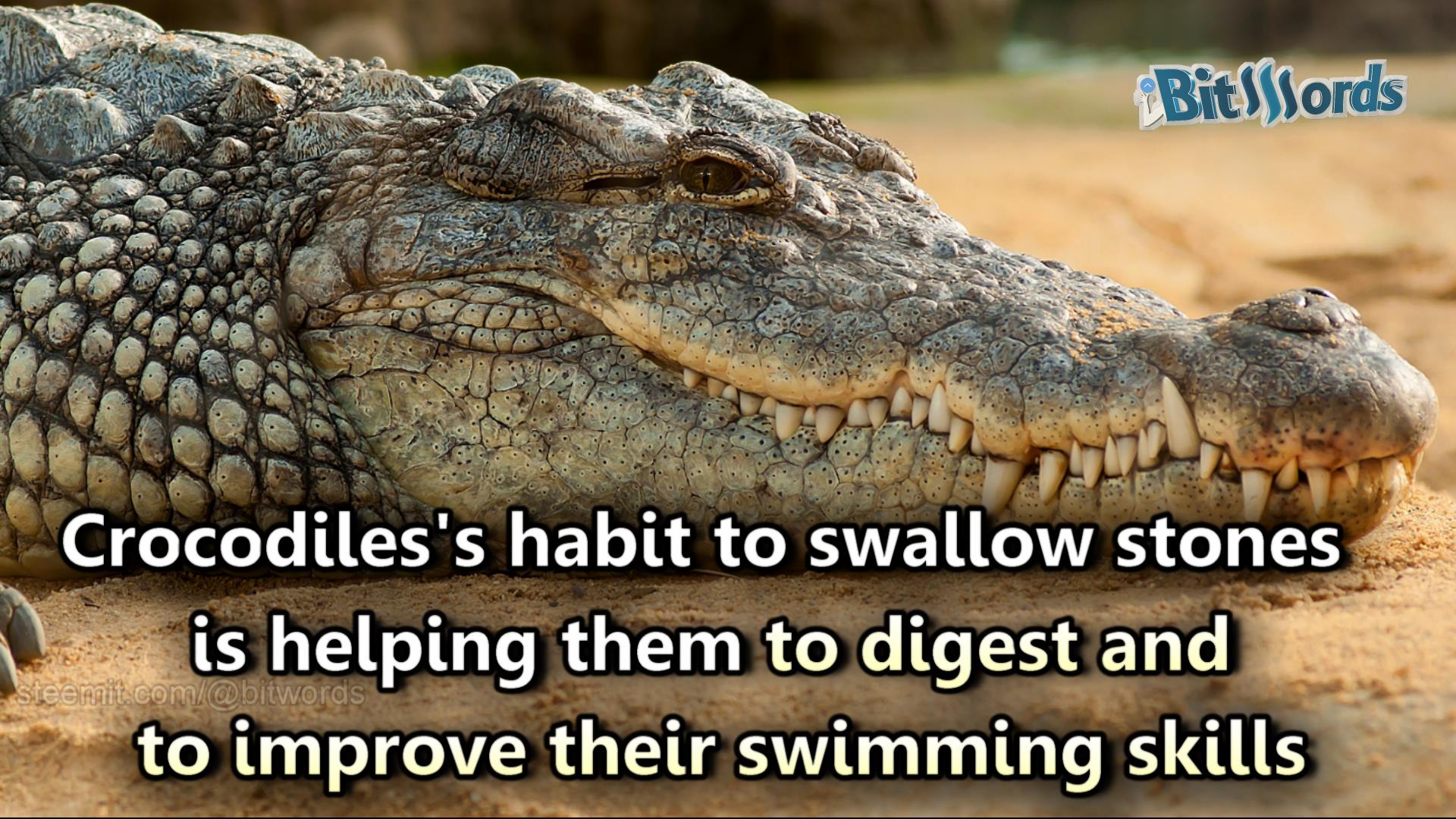
Credit: steemit.com

Credit: animals.mom.com
Frequently Asked Questions For Why Do Crocodiles Swallow Stones
Do Crocodiles Swallow Stones To Dive Deep?
Crocodiles swallow stones called gastroliths, although the true reason is not fully known. It is believed that these stones may aid in the breakdown of food since crocodiles don’t chew.
What Animals Eat Stones To Help Digestion?
Crocodiles and alligators swallow stones to aid in digestion by crushing and grinding food. They do this to help break down tough-to-process meals and to eliminate parasites. Swallowing stones also allows them to stay underwater longer.
Why Do Reptiles Eat Rocks?
Reptiles eat rocks to aid digestion and break down food, as they don’t chew. Some reptiles may ingest rocks accidentally while eating.
Why Do Crocodiles Swallow Their Prey Whole Or Tear It Apart?
Crocodiles swallow their prey whole or tear it apart because their teeth are designed to seize and hold prey, not to chew. They will swallow small prey whole and use their powerful teeth and jaws to crush and break up larger prey or to splinter the hard outer shell of crustaceans or turtles.
Conclusion
Crocodiles’ habit of swallowing stones, known as gastroliths, remains a mysterious yet essential aspect of their digestion process. While the exact purpose is not fully understood, the stones may play a crucial role in aiding the breakdown of their food, as crocodiles lack the ability to chew.
This unique behavior showcases the fascinating adaptability of these ancient creatures.


